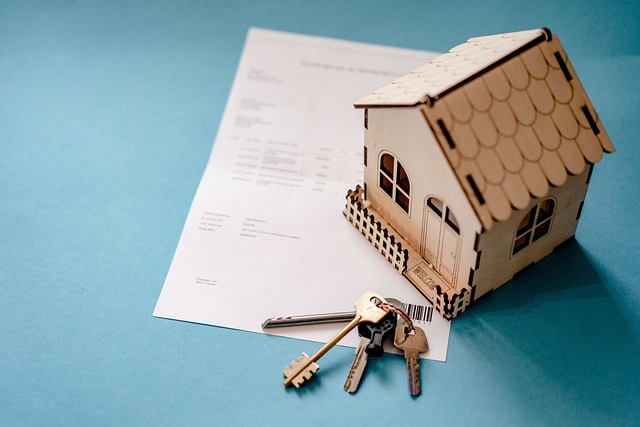Unlocking Home Value: Essential Property Valuation Guide
Discover how home values are determined using proven appraisal methods, market signals, and renovation impacts. This guide explains professional valuation approaches, differences between market and appraised value, and the pros and cons of online estimators and experts, helping you make smarter real estate choices.

How professional valuers establish a home’s worth
Licensed appraisers typically rely on three established methods to estimate property value. The sales comparison approach looks at recent, nearby sales of homes with similar characteristics — size, age, condition, and location — and adjusts for differences to arrive at a market-appropriate figure. The cost approach calculates how much it would take to replace the structure today minus accumulated depreciation, then adds the land value; this is often useful for newer builds or unique properties. For rental and investment properties, the income approach converts expected rental revenue into a present value using capitalization rates or discounted cash flows. In practice, appraisers frequently blend these methods and weigh the most relevant approach according to the property type and market dynamics to produce a defensible valuation.
Market value versus appraised value: what separates them
Market value reflects the price a willing buyer would pay a willing seller in the current marketplace, influenced by supply and demand, buyer sentiment, financing availability, and local trends. Appraised value is a professional opinion based on data, inspection, and standardized techniques. The two numbers can diverge — often in fast-moving markets where buyers bid above recent comparable sales, or when an appraiser finds factors that limit value. Lenders usually use the appraised value as a conservative reference for mortgage risk, while sellers and agents lean on market value to set listing prices and negotiate offers. Understanding both metrics helps you set realistic expectations whether you’re buying, selling, or refinancing.
Which home improvements actually add value?
Not every upgrade produces the same return. Improvements that address functionality and broad buyer preferences typically yield the best returns. Kitchen remodels — especially minor to mid-range updates like new countertops, cabinets, or fixtures — and bathroom renovations are consistently ranked among top value-add projects. Enhancing curb appeal through landscaping, fresh siding, or a new front door can influence first impressions and increase perceived value.
On the other hand, highly personalized or niche additions, such as an exotic themed room or overly bespoke finishes, may not resonate with a wide set of buyers and can be harder to recoup. Energy-efficient upgrades, including new windows, improved insulation, or solar panels, are growing in appeal as buyers factor in long-term utility savings and sustainability. Routine maintenance and timely repairs also protect value; a well-maintained property tends to command higher offers than one with visible deferred upkeep.
Digital valuation tools and professional services compared
Homeowners have a range of options for estimating property value, from quick online estimates to formal appraisals. Automated valuation models (AVMs) use algorithms and public records to produce instant estimates, which are useful for ballpark figures but can miss unique property details. Real estate agents provide comparative market analyses (CMAs) that incorporate local market knowledge and subjective insights about buyer preferences. Licensed appraisers deliver the most detailed and creditworthy reports, grounded in inspection and standardized methodology.
| Service Type | Provider Example | Key Features | Typical Accuracy |
|---|---|---|---|
| Online estimator | Zillow (Zestimate) | Instant valuation, public sales history, user-submitted updates | Moderate |
| Automated model | Redfin Estimate | Algorithmic pricing, frequent updates, regional adjustments | Moderate |
| Local agent analysis | Real estate broker/agent | Comparative market analysis, neighborhood expertise, pricing strategy | Good |
| Professional appraisal | Licensed appraiser | On-site inspection, formal report for lenders, documented methodology | High |
Prices and fees are subject to change; confirm costs independently before making financial decisions.
How to use these valuation sources together
Start with a free online estimate to get a quick snapshot, then consult a local agent for context about current demand, days on market, and buyer preferences. If you are buying, refinancing, or need an authoritative value for legal or tax purposes, hire a licensed appraiser to produce an official appraisal. For investment properties, consider both market comparables and the income approach so you can evaluate yield and potential cash flow.
Practical tips for homeowners and buyers
- Monitor recent sales and active listings in your neighborhood to spot pricing trends. Local shifts can alter value more quickly than national indicators.
- Keep records of renovations, permits, and maintenance; documented upgrades can support a higher asking price.
- Focus improvements that appeal broadly and improve function: kitchens, bathrooms, energy efficiency, and external appearance.
- When relying on online estimates, treat them as preliminary guidance rather than a substitute for an in-person inspection or expert opinion.
- If a sale depends on financing, remember lenders will likely order an appraisal that can affect final loan amounts.
Final considerations
Determining home value is both art and science. Robust valuations combine data-driven approaches, on-the-ground knowledge, and an understanding of buyer sentiment. While automated tools provide speed and convenience, professional appraisals and experienced agents bring nuance and accountability. Regularly tracking local market activity and keeping your property in good repair are the most reliable ways to protect and potentially increase its value over time.






